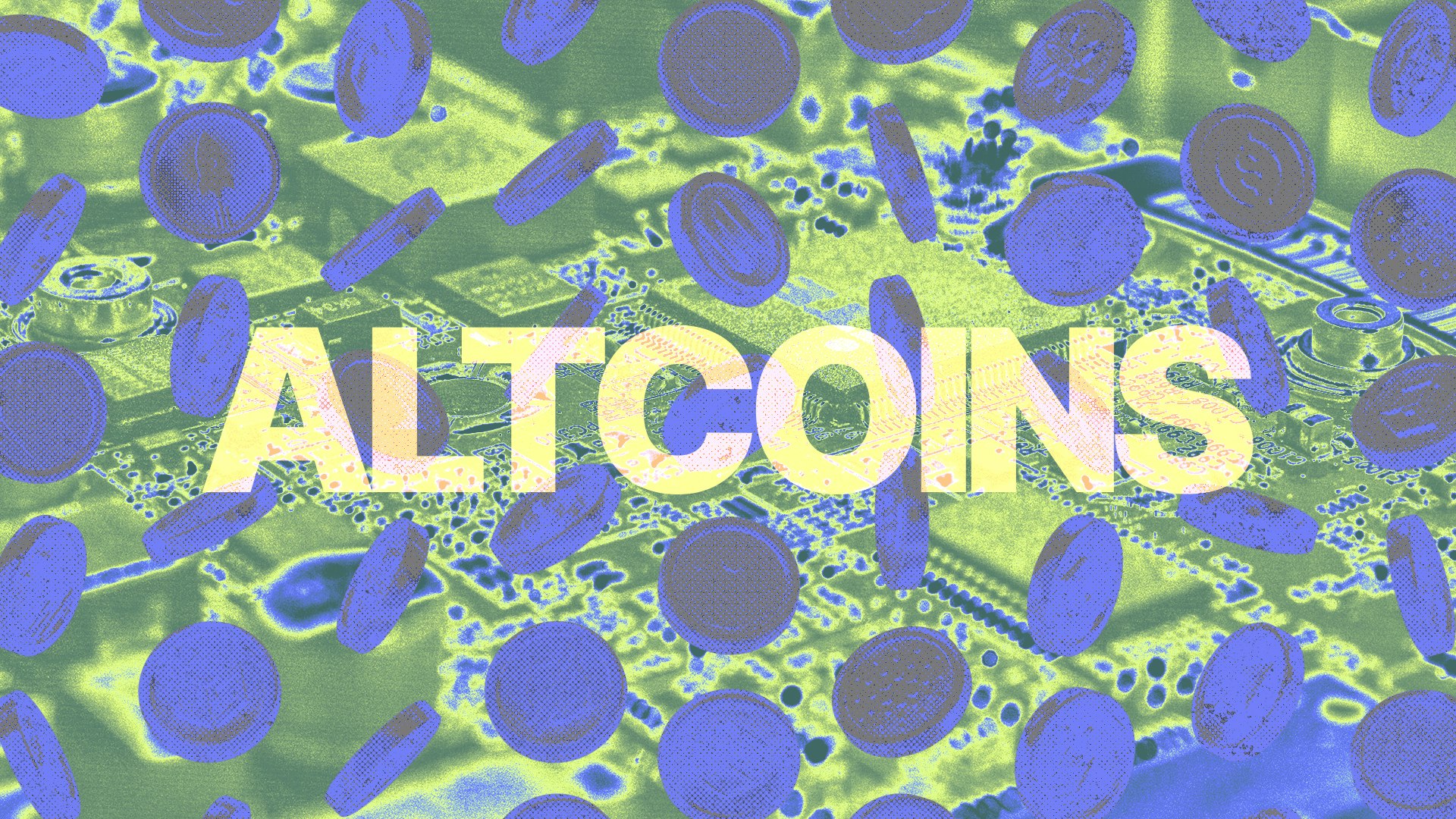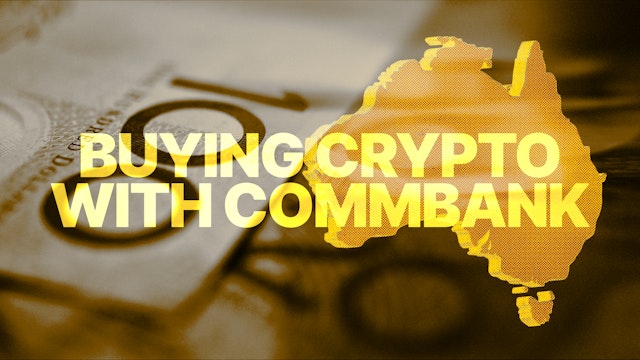AU What Is an Altcoin? Exploring the Crypto World Beyond Bitcoin
From Ethereum to Dogecoin, here is a look at the broad world of cryptocurrencies that sit outside Bitcoin, and what makes them different.
In this article...
- An altcoin is any cryptocurrency other than Bitcoin.
- Altcoins are usually more volatile than Bitcoin and support a wider mix of use cases and technologies.
- These assets range from full blockchain networks like Ethereum to tokens used for governance and rewards.

Altcoin is short for "alternative coin". In simple terms, it refers to every cryptocurrency that is not Bitcoin. Some definitions of an altcoin exclude both Ethereum and Bitcoin, but mostly, it means anything other than Bitcoin.
When Bitcoin launched in 2009, it was the only public blockchain in existence. Before long, developers realised that you could adjust the underlying technology to chase other goals. Some focused on faster and cheaper transactions, others on reducing energy use, and some on building systems where money could be programmable.
There are now thousands of altcoins. These range from large networks with global user bases and high market value, such as Ethereum and Solana, through to tiny experimental projects that may never reach scale.
Bitcoin is often seen as "digital gold", or a long-term store of value. Altcoins are usually viewed as the application and innovation layer of the crypto sector, where new ideas are tested and new products are built.
How Altcoins Work: Coins vs Tokens
Although people often group them under one label, not all altcoins are the same. Broadly speaking, there are two main technical types: Layer‑1 coins and tokens.
Layer‑1 Coins
Layer‑1 coins run on their own independent blockchains. Examples include Ethereum (ETH), Solana (SOL) and Cardano (ADA).
These coins are the native currency of their networks. They are typically used to pay transaction fees, reward validators or miners, and align incentives for people who help secure the system.
You can think of these networks as similar to computer operating systems such as Windows or macOS. They provide the base layer on which other applications can be built.
Tokens
Tokens do not have their own blockchain. They live on top of an existing network, most commonly Ethereum, and rely on that network's security and processing power.
Examples include Uniswap (UNI) or Shiba Inu (SHIB). The rules for each token sit in a smart contract. This defines how the token is created, transferred and sometimes how it can be governed.
If Layer‑1 coins are the operating system, tokens are the apps and files that run on top. They can represent many things, from voting rights to reward points, and can be tailored to very specific use cases.
Real‑life Examples and Categories
Altcoins are often designed with a clear role inside the digital economy. Below are some of the key categories you are likely to see.
Smart Contract Platforms
These are some of the most important altcoin networks by usage and market size. Cryptocurrencies such as Ethereum and Solana allow developers to create decentralised applications (dApps) that run on their blockchains.
These platforms support everything from decentralised finance (DeFi) products, to NFT and digital art markets, gaming, social media tools and much more. Many newer altcoins are built to connect with or improve on these ecosystems.
Stablecoins
Stablecoins such as Tether (USDT) and USD Coin (USDC) are designed to reduce price volatility. They are usually pegged to the value of a fiat currency, most commonly the US dollar, and are often backed by cash, cash equivalents or short‑term government debt.
Traders use stablecoins to move value between exchanges and DeFi protocols without constantly going back to a bank account. For Australian users, stablecoins can also be a bridge between AUD and international crypto markets.
Governance Tokens
Some altcoins give holders a say in how a protocol evolves. With governance tokens such as Uniswap (UNI), holders can vote on proposals, including fee models, treasury spending or software upgrades.
In these systems, control is spread across the community instead of resting with a single company or small group of insiders. The idea is to align the interests of users, developers and investors.
Memecoins
Memecoins are inspired by internet jokes and viral culture. Coins like Dogecoin (DOGE) and Pepe (PEPE) often begin as pranks or social experiments.
They may not have complex technical features, but they can build intense communities. Price moves are often driven by social media, celebrity mentions and speculation, rather than fundamentals.
Emerging Trends: RWAs and DePIN
Altcoin trends change quickly. As of early 2026, two of the more active themes are Real World Assets (RWAs) and DePIN (Decentralised Physical Infrastructure Networks).
RWA projects aim to tokenise real‑world items, such as property, treasury bonds or invoices. In theory, this can make traditional assets easier to trade and use as collateral.
DePIN projects reward people for running physical hardware, for example Wi‑Fi hotspots, sensor networks or data storage devices. Users contribute infrastructure and receive tokens in return, instead of relying on one central company to build and fund everything.
Understanding "Alt Season"
Traders sometimes talk about "Alt Season". This refers to a stretch of time when altcoins as a group rise faster than Bitcoin, in both price and trading volume.
Crypto markets often move in cycles. Many investors begin with Bitcoin, which is typically seen as the most established and liquid asset. After strong Bitcoin gains, some holders take profit and shift part of it into large altcoins such as Ethereum.
If confidence stays high, money can continue to flow from the major altcoins into smaller, riskier tokens that have lower market value but potentially higher upside. This can lead to sharp price increases across many altcoins in a short space of time.
Alt Seasons can feel euphoric and can attract a wave of new traders. However, they often end quickly. When sentiment shifts, liquidity can disappear, and prices can fall just as fast as they rose.
Risks and Red Flags
Altcoins come with higher risk than Bitcoin for most investors. They generally have lower market depth and thinner order books, so prices can move sharply on relatively small trades.
Before allocating funds to altcoins, it is worth understanding some of the key risks.
- High volatility: Altcoins often move far more than traditional assets. Double‑digit percentage swings within a single day are not unusual, in both directions.
- The "zombie" risk: Many projects never gain real traction. Some chains or tokens may still exist on paper, but with almost no users, trading volume or active development. These are sometimes called "zombie chains".
- Scams and rug pulls: It is simple and cheap to create a new token. In some cases, creators use aggressive marketing to draw in buyers, then remove or drain the liquidity pool. This "rug pull" can leave holders with tokens that are effectively worthless.
- Lack of regulation: Much of the altcoin sector is still experimental and only partly regulated. If a smart contract fails, a bridge is hacked, or founders disappear, there may be limited options for recovery. Consumer protections that apply to traditional financial products may not apply.
For Australian users, it is also important to consider local tax and regulatory settings. Crypto transactions can trigger capital gains tax events, and rules may change over time, so it is wise to keep records and seek professional advice.
Why Altcoins Matter
Bitcoin provides a relatively simple, secure and predictable base for digital value. Altcoins, on the other hand, are where most of the experimentation happens.
They let developers test new ideas, such as decentralised science, on‑chain gaming, identity solutions and artificial intelligence tools that interact with blockchains. This can happen without affecting the stability or security of the Bitcoin network.
If you understand the trade‑off between Bitcoin's relative stability and the higher risk, higher innovation profile of altcoins, you are better placed to navigate the broader crypto market. Whether an altcoin becomes core financial infrastructure, a niche tool, or just a passing meme, these projects together show how quickly blockchain technology is changing.

Suggested Articles

What Happens If You Send Crypto to the Wrong Network?
Understanding cross‑chain compatibility and what you can do when funds go missing. Read more
How to Buy Crypto With Commonwealth Bank (CBA)
Want to buy crypto or Bitcoin using your Commonwealth Bank account (CBA)? Here's how to do it with CoinJar.Read more
CoinJar Card: Flex While You Shop, Earn Crypto Rewards
Earn crypto rewards while you shop, thanks to CoinJar Card, which is accepted pretty much everywhere.Read moreBrowse by topic
Disclaimer: This article is for informational purposes only and does not constitute financial or investment advice. Cryptocurrencies, including Bitcoin, are highly volatile and speculative assets, and there is always a risk that they could become worthless.
Readers should conduct their own research and consult with a qualified financial advisor before making any investment decisions.
CoinJar does not endorse the content of, and cannot guarantee or verify the safety of any third party websites. Visit these websites at your own risk.
Your information is handled in accordance with CoinJar’s Collection Statement.
CoinJar’s digital currency exchange services are operated by CoinJar Australia Pty Ltd ACN 648 570 807, a registered digital currency exchange provider with AUSTRAC.
CoinJar Card is a prepaid Mastercard issued by EML Payment Solutions Limited ABN 30 131 436 532 AFSL 404131 pursuant to license by Mastercard. CoinJar Australia Pty Ltd is an authorised representative of EML Payment Solutions Limited (AR No 1290193). We recommend you consider the Product Disclosure Statement and Target Market Determination before making any decision to acquire the product. Mastercard and the circles design are registered trademarks of Mastercard International Incorporated.
Google Pay is a trademark of Google LLC. Apple Pay is a trademark of Apple Inc.
This site is protected by reCAPTCHA and the Google Privacy Policy and Terms of Service apply.

